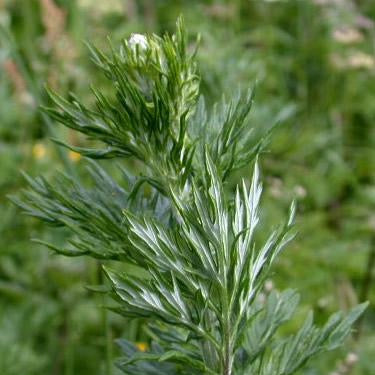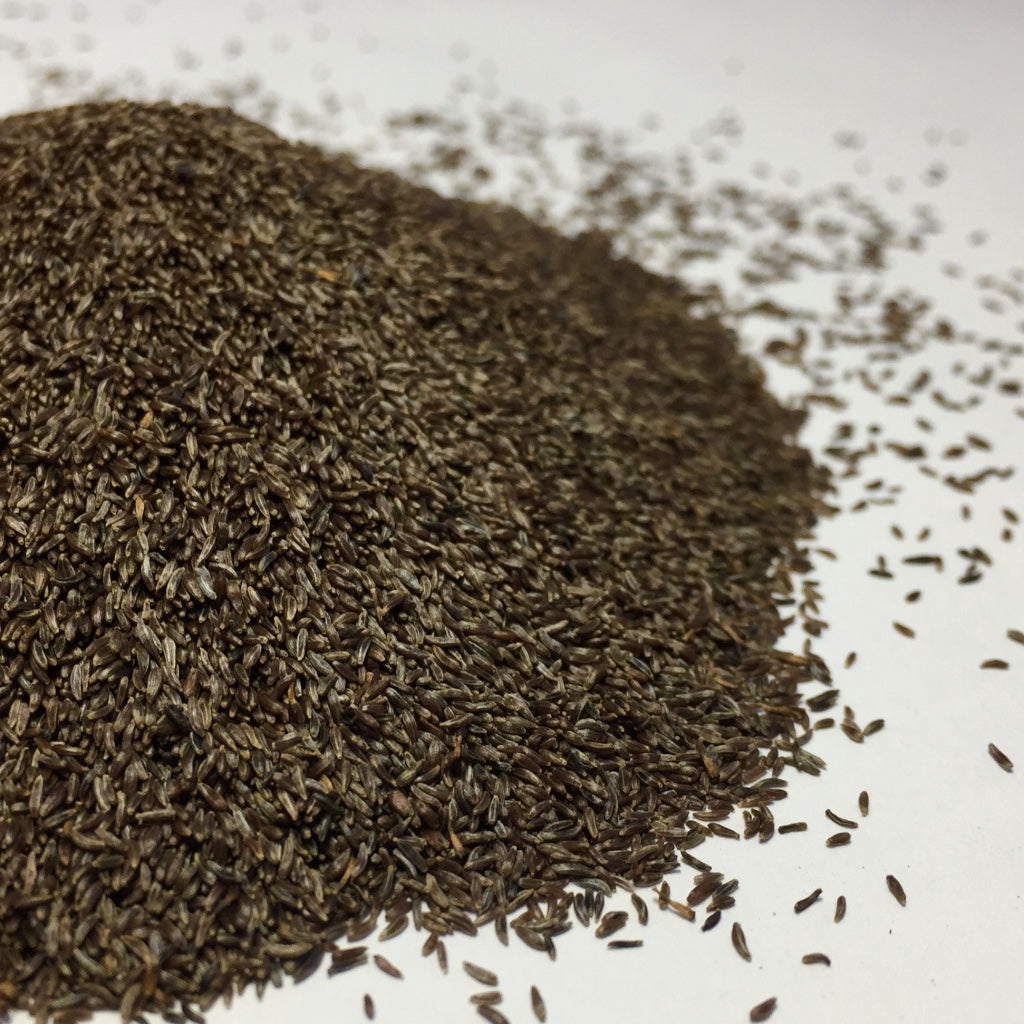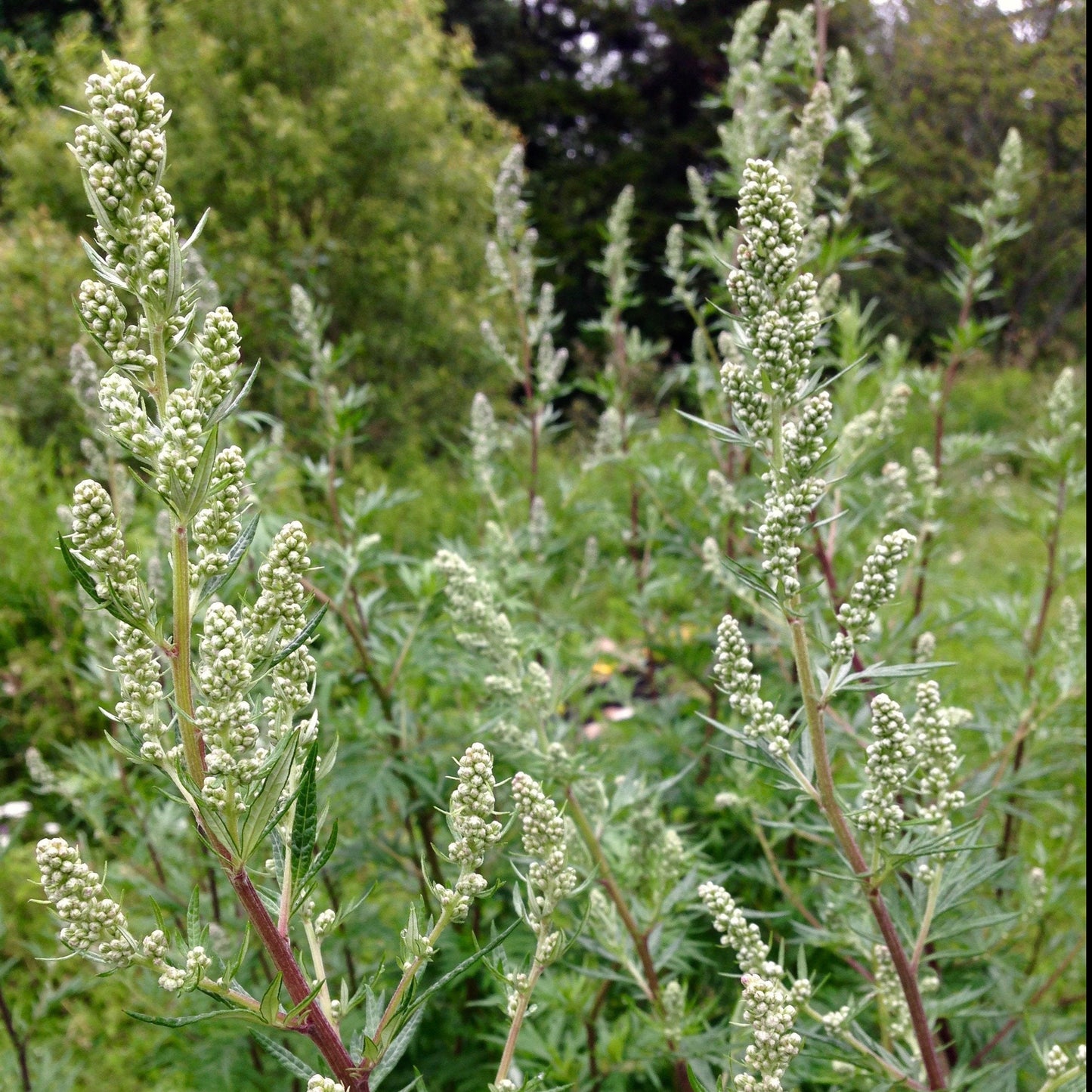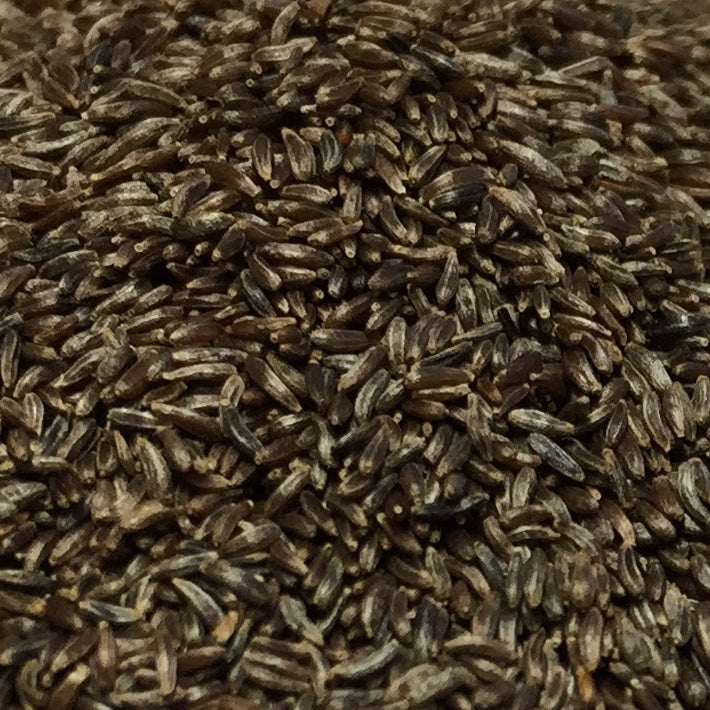Mugwort, Common (Artemisia vulgaris)
List Price: $0.00
Couldn't load pickup availability
*Designated an invasive species in the following states, no sale: AK, CT, GA, IN, KY, MD, ME, NJ, NY, PA, VA
Common Mugwort, alternately ‘Felon Herb’ or ‘Wild Wormwood,’ is a sacred herb revered for its medicinal and culinary properties by cultures worldwide, well-known for its association with magic, protection, and the dream world. Often Artemisia vulgaris is dried and smoked or burned as a smudge stick in belief of its cleansing properties, and some tuck sprigs of it beneath their pillow as a means of encouraging vivid dreams. Some Native peoples in North America would enact this same charm, but as a means of repelling spirits. While native to parts of Europe and Asia, it’s thought that Artemisia was potentially introduced to Canada in the 16th century by Jesuit missionaries, and spread from there. It also traveled by ship as a contaminant in nursery stocks.
Ancient Greeks considered this plant to be an herb of Artemis, goddess of the hunt, fertility, and the wild, and protector of women— the genus name Artemisia is a reference to this, and the connection likely originates with its use in helping regulate the menstrual cycle. Mugwort can be useful both in times of difficult puberty as well as during menopause. Romans would tuck leaves in their shoes as a balm for weary feet. In Christian tradition, this herb is associated with St. John, and is still used for St. John’s day celebrations on the Isle of Man. Before hops became used in the beer brewing process, Mugwort was one of the herbs blended into primitive ales. It was referred to in the Middle Ages as ‘Mother of Herbs’ for its common application, often in gynecological context or for gastrointestinal upset. Its common name may be derived from the old English ‘moughte,’ for moth, for its folk use as an insect repellent. For this same reason, the origin could also be in the word ‘mug’ for gnat, and ‘wort’ for plant or root. In Traditional Chinese Medicine, this herb is burned to heat and activate acupuncture points. There are possible applications of Mugwort in terms of parasites, and may be beneficial in helping expell worms.
In addition to its herbal applications, this plant has been long-used for culinary purposes as well. In Europe it is well known as the stuffing for a traditional German Christmas goose. Aromatic and slightly bitter, the herb’s roots and flowers make for a good tea or flavoring agent to meat dishes; leaves and shoots can be cooked, and feature a prominent role in many Korean and Japanese dishes (though sometimes these use a different Artemisia species). This silvery-green plant, with its pungent oils and array of uses, is always a lovely herb to have on hand. Mugwort’s extensive root system allows it to quickly take hold in its environment, so be sure to take care that it does not self-seed onto open earth.







